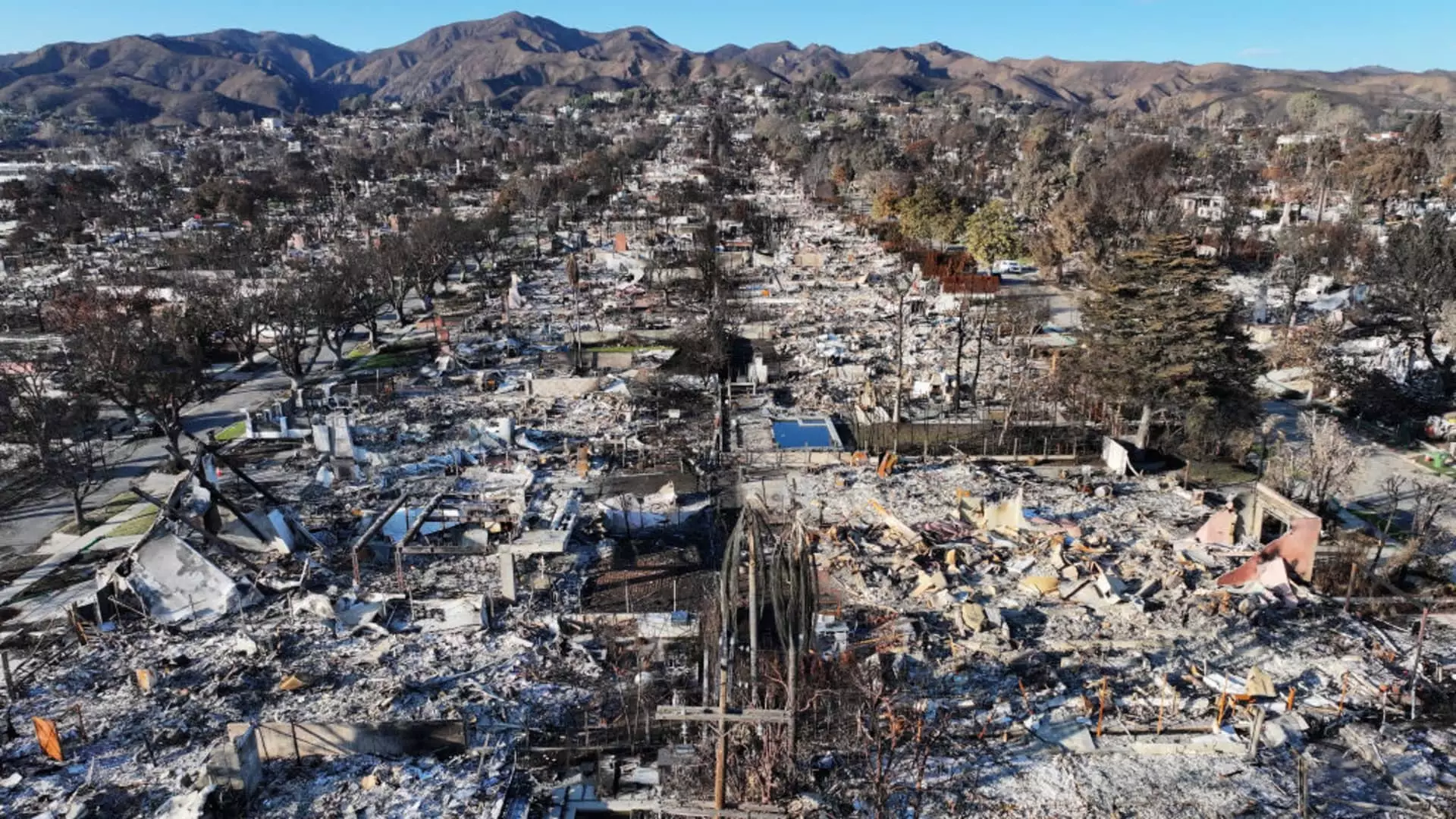The recent devastating wildfires in Los Angeles have sent shockwaves through the financial statements of Germany’s leading reinsurers, Munich Re and Hannover Re. With a staggering combined profit loss of approximately $1.9 billion in the first quarter, it’s become clear that the consequences of climate change are no longer abstract concepts—they’re manifesting in concrete financial repercussiones. Munich Re’s expected claims of around €1.1 billion ($1.2 billion) and Hannover Re’s individual losses of €631.4 million ($673 million) highlight that these insurance goliaths are on the front lines of a dramatically shifting global landscape.
What we’re witnessing isn’t just an industry downturn; it’s a signal of impending chaos as each wildfire, flood, and hurricane exacerbates already strained resources. Reinsurers, the financial backstops for primary insurers, often find themselves in treacherous waters when natural disasters strike, and it appears that this particular storm has wrought havoc like none before.
The Paradox of Resilience Amidst Loss
Despite the grim numbers, Munich Re’s Chief Financial Officer, Christoph Jurecka, maintained that the company exemplified resilience and prudent management in navigating the crisis. A net profit of €1.1 billion, albeit a 48% drop from the previous year, might seem like a silver lining to the untrained eye. However, the reality is stark—this is a dangerous facade. Resilience should not mean simply weathering the storm; it should indicate a proactive approach to prevent losses from escalating to catastrophic proportions.
The stark contrast in Munich Re’s property-casualty segment, where claim expenditures more than doubled, paints a grim picture. The 72% decline in net profit for this division to just €343 million strongly suggests that traditional risk models are increasingly insufficient against increasingly intense weather events. The overreliance on historic data for forecasting losses has revealed its fundamental flaws. We find ourselves staring down the barrel of a potential reckoning, wherein the crisis of today could be dwarfed by the catastrophes of tomorrow if such models remain unchanged.
Investor Sentiment: A Cautionary Tale
The stock performance of both Munich Re and Hannover Re on the European Stoxx 600 index is another marker of investor apprehension, with shares dropping nearly 4% following the report. This unease is palpable, and it’s reflected in analysts’ sentiments too, which have skewed negatively. RBC Europe described its outlook for Munich Re as pessimistic, citing higher-than-expected claims even while attempting to maintain an optimistic façade.
J.P. Morgan’s cautious neutrality only compounds this sense of doom. When firms that are typically looked to for stability and insurance become the recipients of analytical concern, it should be alarming for all stakeholders involved. The global financial system is interwoven, and instability in key players like these reinsurers can have domino effects throughout the economy. As we continue to experience increasingly unpredictable climates, the financial ramifications could extend far beyond losses on paperwork—the effects could ripple into pension funds, investment portfolios, and ultimately everyday lives.
The Broader Implications of Climate Change
The singular event of wildfires in California brings to light a broader, more systemic issue that transcends company balance sheets. Climate change isn’t solely an environmental crisis; it’s an economic one as well, one that could unravel the very foundations of how industries like insurance operate. The current paradigm simply cannot withstand the reality that every year may see heightened incidences of natural disasters. What insurance companies long viewed as “natural” have become increasingly unpredictable risks that defy established models.
In this light, the concept of resilience must evolve. No longer can companies offer assurances based on historical data when future events may be orders of magnitude worse. The door is swinging open, demanding reinsurance firms rethink their methodologies, explore innovative solutions, and actively engage with the pressing issues of climate adaptation and mitigation.
As the gap between climate predictions and reality grows, stakeholders have the responsibility to push for change across the board. We cannot afford to treat these losses as one-off events; they are harbingers of what lies ahead if our approach to climate and finance does not reinvent itself.

